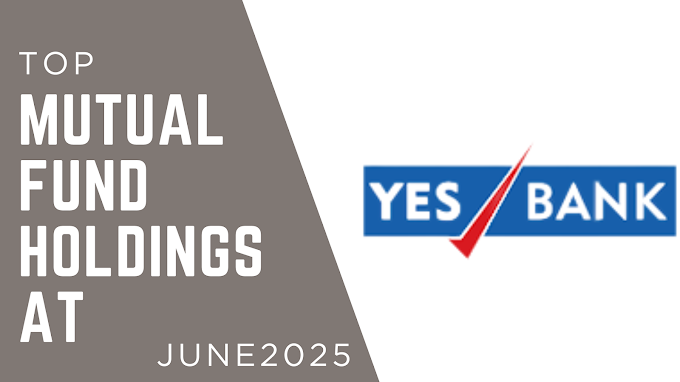When investing in the Indian stock market, retail and institutional investors often come across two key opportunities: Initial Public Offerings (IPOs) and Follow-on Public Offerings (FPOs). Both represent chances to invest in companies, but they differ significantly in terms of risk, return potential, and timing.
Here's a clear comparison to help you decide which may be the smarter investment for your goals:
---
📚 Table of Contents
- 🟢 What is an IPO?
- 🔵 What is an FPO?
- 📊 Key Differences Table
- 💡 Which is Smarter?
- 🧠 Expert Tip:
- ❓ Frequently Asked Questions (FAQs)
🟢 What is an IPO?
An Initial Public Offering (IPO) is when a private company offers its shares to the public for the first time to raise capital.
✅ Pros:
- First-Mover Advantage: Early investment in a high-growth company.
- Listing Gains: IPOs are often priced attractively, leading to a pop on listing day.
- Growth Potential: Younger companies with disruptive potential.
⚠️ Risks:
- Valuation Uncertainty: No past public performance to benchmark.
- Oversubscription Risk: You may not get full allotment.
- Market Sentiment Driven: Prices can be volatile around the listing.
---
🔵 What is an FPO?
A Follow-on Public Offering (FPO) is when an already listed company issues additional shares to raise more capital.✅ Pros:
- Track Record: You can evaluate based on past financials and stock performance.
- More Data, Less Risk: Easier to analyze fundamentals and management.
- Price Stability: Less speculative compared to IPOs.
⚠️ Risks:
- Dilution: New shares can reduce earnings per share.
- Use of Funds: Need to assess if the company is raising funds for the right reasons.
- Limited Buzz: Less hype = fewer short-term gains.
---
📊 Key Differences Table
| Factor | IPO | FPO |
|---|---|---|
| Meaning | First-time share sale to public | Additional shares post-listing |
| Company Stage | Usually early-stage or unlisted | Established, already listed |
| Information Available | Limited | Detailed history and disclosures |
| Risk Level | High | Moderate |
| Investor Type | Aggressive / Growth-oriented | Conservative / Value-focused |
---
💡 Which is Smarter?
It depends on your investment strategy and risk appetite:
Choose IPOs if: You’re looking for high-growth opportunities, are comfortable with volatility, and want to ride the hype for potential listing gains.
Choose FPOs if: You prefer stable, data-backed investments with lower downside risk, and want to invest in a company with a known track record.
---
🧠 Expert Tip:
Smart investors often use a mix of both. IPOs can provide a boost to short-term gains, while FPOs can strengthen long-term portfolio stability.
---
Read More
---
❓ Frequently Asked Questions (FAQs)
❓ What is the difference between an IPO and an FPO?
IPO (Initial Public Offering) is when a company offers shares to the public for the first time.FPO (Follow-on Public Offering) is when an already listed company issues additional shares to raise more capital.
---
❓ Which is riskier: IPO or FPO?
IPOs are generally riskier due to limited historical data and potential overvaluation. FPOs carry less risk as the company is already publicly traded and has a financial track record.---
❓ Are IPOs better for short-term gains?
Yes, many IPOs offer strong listing gains due to investor demand and hype, but not all IPOs perform well in the long run.---
❓ Are FPOs good for long-term investors?
Yes, FPOs often appeal to long-term investors because the issuing company has a proven business model, and the offering price is usually discounted.---
❓ Can I apply for both IPOs and FPOs through my demat account?
Yes. Most brokers in India allow you to apply for both IPOs and FPOs using your demat and trading account.---
❓ Why do companies issue FPOs after IPOs?
Companies issue FPOs to raise additional capital for expansion, debt repayment, or other corporate purposes once they’re already listed.---
❓ How do I know if an IPO or FPO is a good investment?
Look at the company’s fundamentals, purpose of the fundraise, past financial performance, promoter credibility, and overall market conditions.---
❓ Are IPOs always oversubscribed?
Not always. While popular IPOs are often oversubscribed, some fail to generate enough interest due to high valuation or weak business outlook.---
❓ Which gives better returns in India historically: IPO or FPO?
There’s no fixed rule. Some IPOs have delivered stellar returns (e.g., Zomato, IRCTC), while others have disappointed. Similarly, FPOs like Ruchi Soya have delivered stable gains over time.---



.png)





